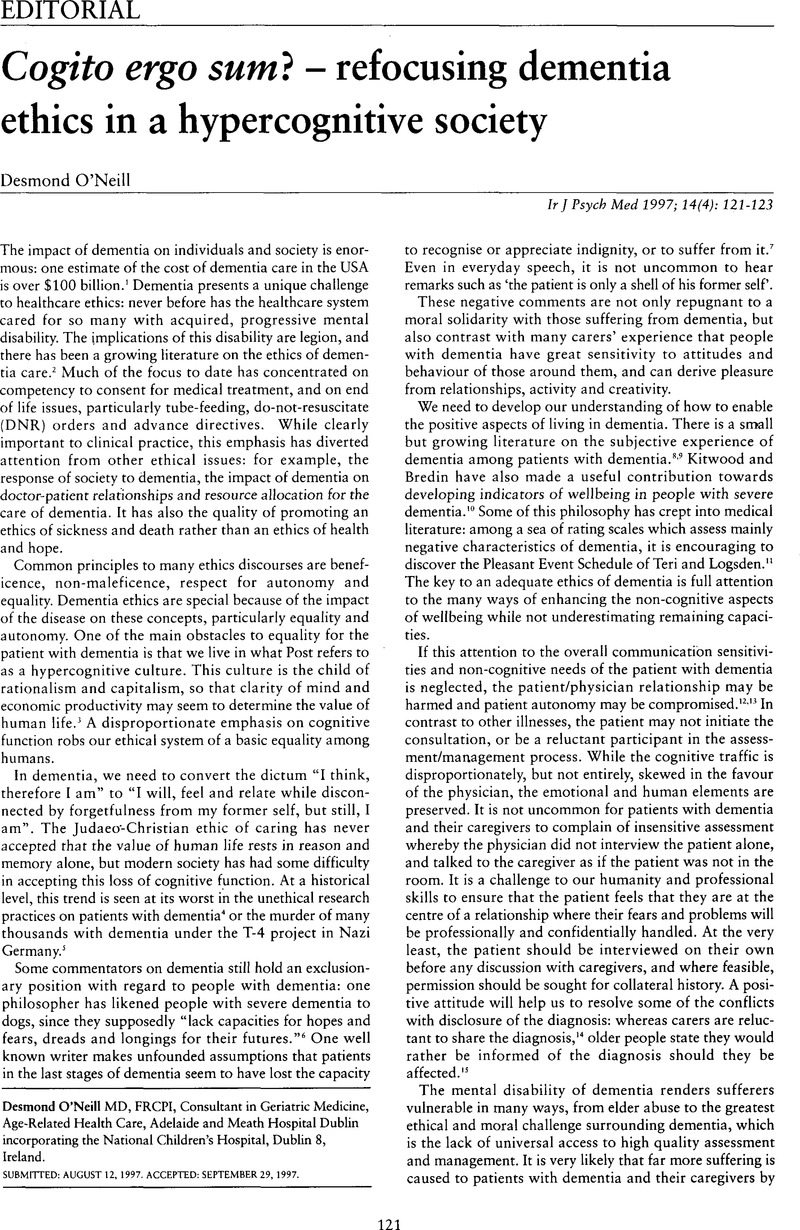Crossref Citations
This article has been cited by the following publications. This list is generated based on data provided by Crossref.
O'Neill, Desmond
2001.
Present, rather than, advance directives.
The Lancet,
Vol. 358,
Issue. 9297,
p.
1921.
Palomo, T.
Beninger, R. J.
Kostrzewa, R. M.
and
Archer, T.
2004.
Gene-environment interplay in affect and dementia: Emotional modulation of cognitive expression in personal outcomes.
Neurotoxicity Research,
Vol. 6,
Issue. 3,
p.
159.
Bucks, R. S.
and
Radford, S. A.
2004.
Emotion processing in Alzheimer's disease.
Aging & Mental Health,
Vol. 8,
Issue. 3,
p.
222.
Ready, Rebecca E.
2007.
Commentary on “Health economics and the value of therapy in Alzheimer's disease.” Patient‐reported outcomes in clinical trials for Alzheimer's disease.
Alzheimer's & Dementia,
Vol. 3,
Issue. 3,
p.
172.
O’Neill, Desmond
2013.
Ethics for Graduate Researchers.
p.
121.
Wade, Matthew
2018.
Virtuous Play: The Ethics, Pleasures, and Burdens of Brain Training.
Science as Culture,
Vol. 27,
Issue. 3,
p.
296.
Sokolowski, Marcia
2018.
Dementia and the Advance Directive.
p.
45.
O'Neill, Desmond
and
Kennelly, Sean
2021.
Responding to responsive behaviour in Alzheimer's disease.
The Lancet,
Vol. 398,
Issue. 10303,
p.
842.
Wong, Gabriel Hong Zhe
and
Yap, Philip Lin Kiat
2025.
A person-centred approach to decision-making and care for persons living with dementia.
Annals of the Academy of Medicine, Singapore,
Vol. 54,
Issue. 4,
p.
252.



